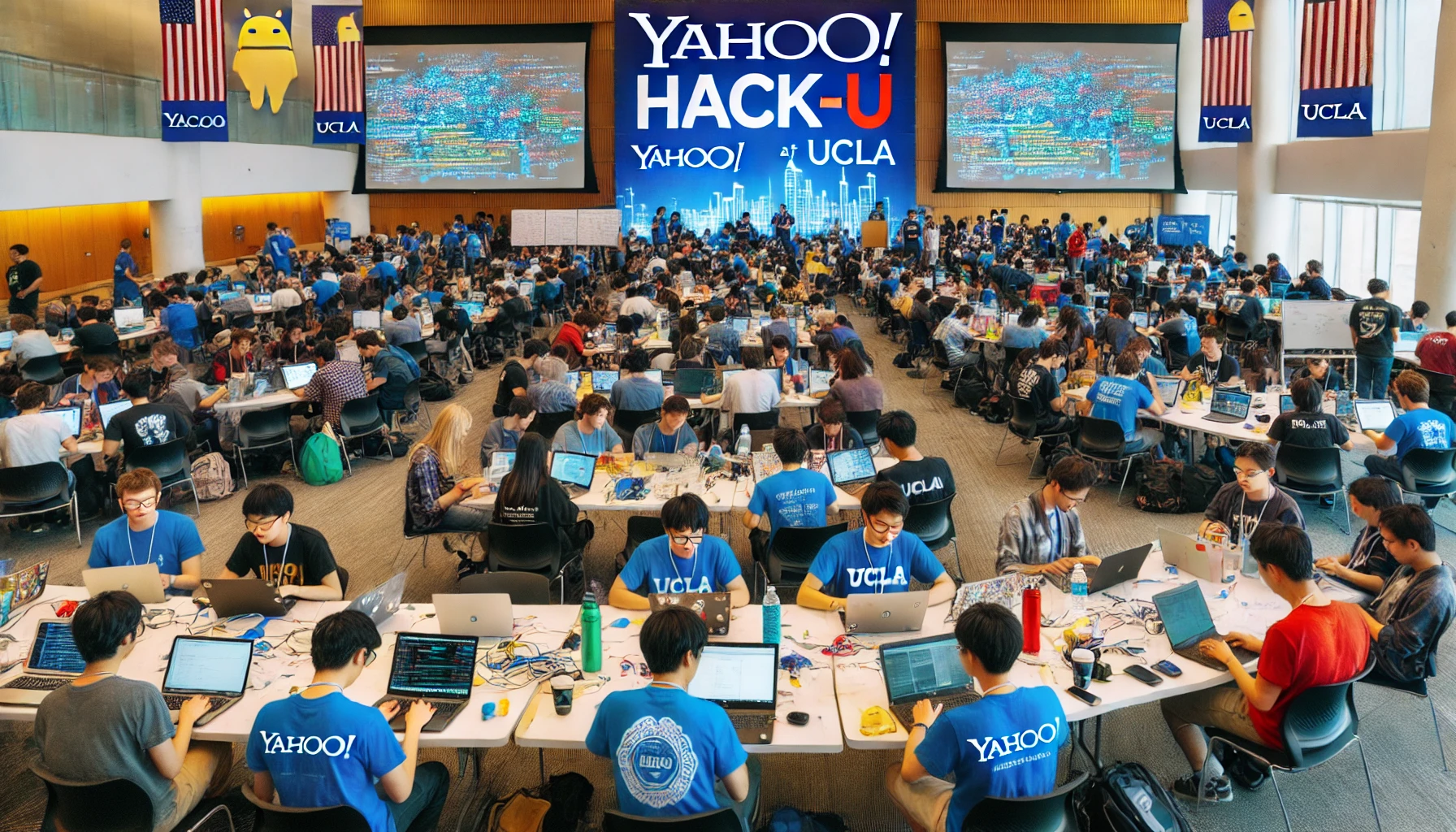The Yahoo Hack-U 2011 at UCLA was a landmark event that showcased the creativity, innovation, and technical prowess of students and tech enthusiasts alike. More than just a hackathon, it was a learning experience for both participants and organizers, offering invaluable insights into the world of rapid development, teamwork, and problem-solving. This event not only paved the way for future hackathons but also brought forward lessons that have continued to shape how such tech events are organized and executed.
In this blog, we will dive into the innovative solutions presented during the Yahoo Hack-U 2011 at UCLA, explore the challenges faced by the participants, and discuss the key lessons learned that have influenced subsequent hackathons and tech events.
Introduction to Yahoo Hack-U 2011 at UCLA
The Yahoo Hack-U 2011 at UCLA was one of the many University Hack Days organized by Yahoo, designed to bring together students, coders, and tech enthusiasts in a highly competitive yet collaborative environment. Participants were tasked with developing working prototypes of innovative software or applications within a tight timeframe. With access to Yahoo’s APIs, open-source tools, and mentorship from experienced engineers, the participants had an excellent platform to showcase their skills, creativity, and technical expertise.
The event was marked by a series of unique projects, creative problem-solving approaches, and lessons that have since become a blueprint for other hackathons. But what made the Yahoo Hack-U 2011 at UCLA stand out was how it highlighted the challenges of rapid innovation and the need for collaboration in the tech industry.
Innovative Solutions and Technologies Presented

The projects presented at the Yahoo Hack-U 2011 at UCLA were a true reflection of the innovation potential in the tech community. From web applications to mobile tools, participants came up with creative solutions to real-world problems. Many leveraged Yahoo’s APIs and other open-source platforms to create innovative solutions within the limited hackathon timeframe.
One notable project was a crowdsourced data platform that allowed users to report real-time traffic issues, which later inspired modern traffic and navigation apps. Another project explored the potential of integrating AI into mobile applications, demonstrating how early-stage innovations can later evolve into mainstream technologies.
The use of real-time data, creative APIs, and agile development processes demonstrated the versatility of hackathon environments in fostering innovation. More importantly, these projects underscored the importance of user-centered design, where participants focused on creating solutions that catered to actual user needs.
Challenges Faced by Participants
Despite the creative breakthroughs, the Yahoo Hack-U 2011 at UCLA wasn’t without its challenges. One of the most significant hurdles participants encountered was the time constraint. Developing a fully functioning prototype within 24-48 hours demanded intense focus, rapid decision-making, and streamlined teamwork. This fast-paced environment led to incomplete projects or rough prototypes in some cases.
Another common challenge was the learning curve associated with unfamiliar technologies. While Yahoo provided mentorship, participants were often working with APIs and development tools they had little experience with. This forced many to learn on the go, resulting in slower progress and occasional technical difficulties.
Team dynamics also played a crucial role in the success or failure of projects. Not all teams were well-synchronized, leading to communication breakdowns or task mismanagement. However, these challenges taught participants the importance of collaboration, delegation, and managing expectations within a team setting.
Key Lessons Learned

The Yahoo Hack-U 2011 at UCLA left a lasting legacy by imparting key lessons that continue to influence hackathons and tech events today.
- The Power of Collaboration
Collaboration was a central theme during the event, and it became evident that no great innovation is born in isolation. Participants learned how crucial it is to communicate effectively within teams and to leverage each other’s strengths. This lesson holds true for all tech-related fields, where cross-disciplinary collaboration often results in the most impactful innovations.
- Prototyping Over Perfection
With a limited timeframe, participants were forced to embrace the concept of prototyping rather than aiming for perfection. The focus shifted from building a flawless product to developing a working proof-of-concept that could later be refined. This approach has become a staple in tech innovation, where rapid prototyping and iteration are often more valuable than a lengthy development cycle.
- Agility in Learning and Problem-Solving
One of the standout lessons from the Yahoo Hack-U 2011 at UCLA was the importance of being agile in learning new technologies. Participants had to pick up new APIs, coding languages, and tools on the fly. This emphasized the need for adaptability and the ability to learn quickly in today’s ever-evolving tech landscape.
- User-Centric Design
Many of the successful projects at the event placed a heavy emphasis on user experience and solving real-world problems. This focus on user-centric design continues to influence hackathons and tech innovations today, where developers are encouraged to create solutions that directly address user pain points rather than just exploring technology for its own sake.
- Networking and Industry Exposure
Hackathons like the Yahoo Hack-U 2011 at UCLA provide participants with invaluable networking opportunities. By working alongside mentors, industry professionals, and other like-minded individuals, participants were able to build connections that often translated into career opportunities or collaborations. This lesson highlights the importance of networking in tech events and the long-term impact it can have on participants’ careers.
Impact on Future Hackathons
The Yahoo Hack-U 2011 at UCLA was instrumental in shaping the structure and objectives of future hackathons. It demonstrated the value of mentorship, rapid prototyping, and collaborative learning. Many of the lessons learned during this event—such as focusing on user-centric solutions and embracing agility—have become core elements in modern hackathon culture.
Subsequent hackathons have incorporated more structured mentorship programs, better access to APIs and tools, and a greater emphasis on teamwork and collaboration. This evolution reflects the growing understanding of the challenges faced during events like Yahoo Hack-U 2011 at UCLA and the importance of equipping participants with the right resources.
Conclusion
The Yahoo Hack-U 2011 at UCLA was a groundbreaking event that not only brought together some of the brightest minds in tech but also laid the foundation for future hackathons. The innovative solutions, challenges, and lessons learned during the event continue to influence how hackathons are organized and executed today. From collaboration to rapid prototyping, the lessons from Yahoo Hack-U 2011 at UCLA serve as a blueprint for future tech innovators and event organizers.
By fostering a culture of innovation, problem-solving, and teamwork, the Yahoo Hack-U 2011 at UCLA has left an indelible mark on the tech community, influencing countless developers, engineers, and students to push the boundaries of what’s possible in the world of technology.
FAQS
What was the purpose of Yahoo Hack-U 2011 at UCLA?
The purpose of the Yahoo Hack-U 2011 at UCLA was to bring together students, tech enthusiasts, and developers to collaborate and create innovative tech solutions in a fast-paced hackathon environment. Participants worked on developing new applications or platforms using Yahoo’s APIs and other tools, aiming to showcase creativity and technical skills within a limited time frame.
2.What types of projects were created during Yahoo Hack-U 2011 at UCLA?
Participants at the Yahoo Hack-U 2011 at UCLA created a variety of innovative projects, including web applications, mobile tools, and software solutions. Some notable projects involved real-time traffic data platforms, crowdsourcing tools, and early integrations of AI in mobile apps. These projects demonstrated the potential for using APIs and open-source technologies to solve real-world problems.
3.What challenges did participants face during Yahoo Hack-U 2011 at UCLA?
Some of the challenges faced by participants during the Yahoo Hack-U 2011 at UCLA included time constraints, as they had to build a functional prototype within 24-48 hours. Additionally, many participants had to quickly learn new technologies and APIs, while managing team dynamics and ensuring efficient communication throughout the process.
4.What were the key lessons learned from Yahoo Hack-U 2011 at UCLA?
Key lessons learned from the Yahoo Hack-U 2011 at UCLA included the importance of collaboration, rapid prototyping, and user-centric design. Participants also learned the value of agility in problem-solving, where adapting quickly to new tools and technologies became crucial. These insights have since influenced how future hackathons and tech events are structured.
5.How has Yahoo Hack-U 2011 at UCLA impacted future hackathons?
The Yahoo Hack-U 2011 at UCLA influenced future hackathons by highlighting the importance of mentorship, collaboration, and focusing on real-world solutions. Many of the lessons learned from this event—such as embracing rapid development cycles and prioritizing user experience—have been adopted by subsequent hackathons, ensuring that participants are well-equipped to innovate within a short timeframe.
